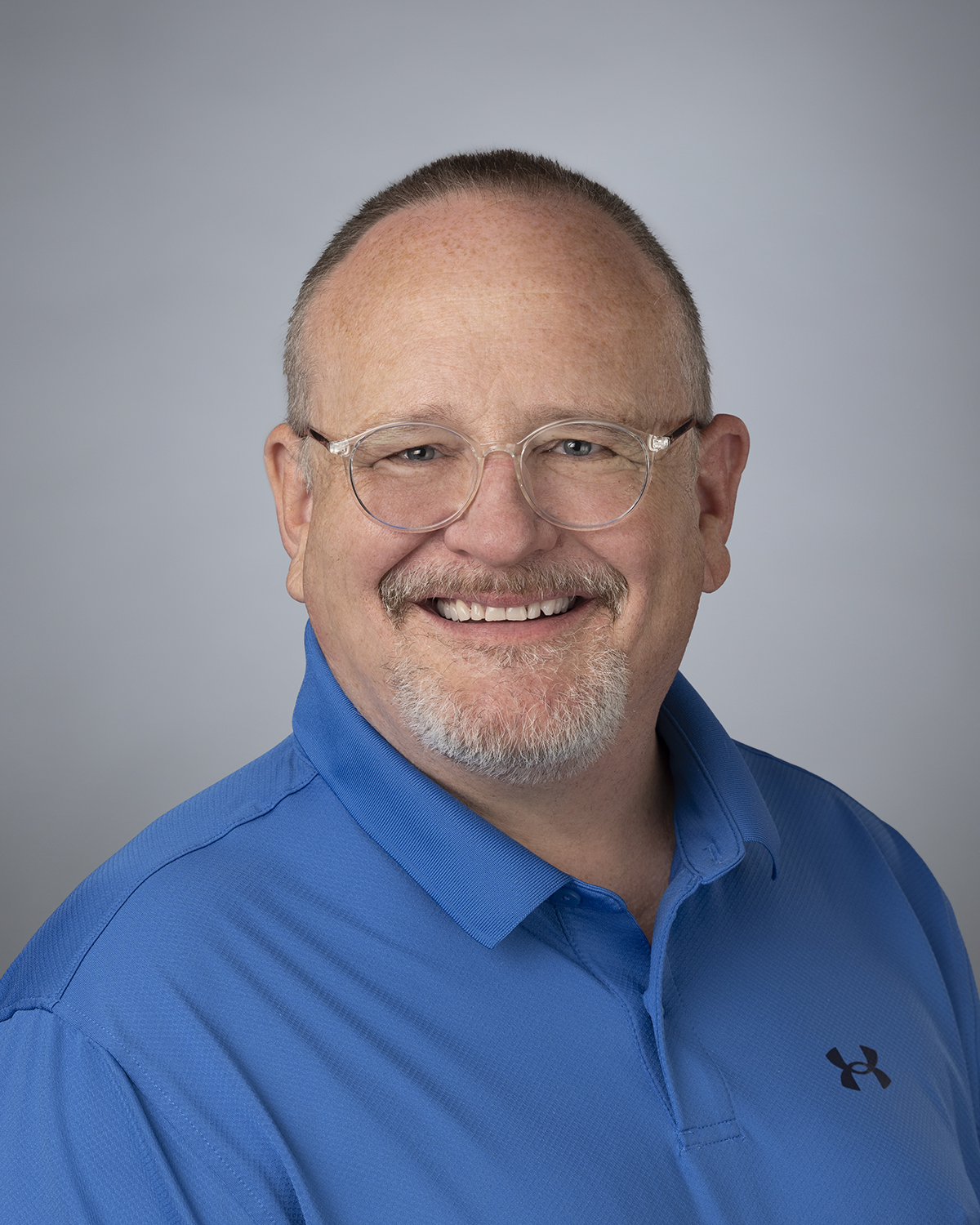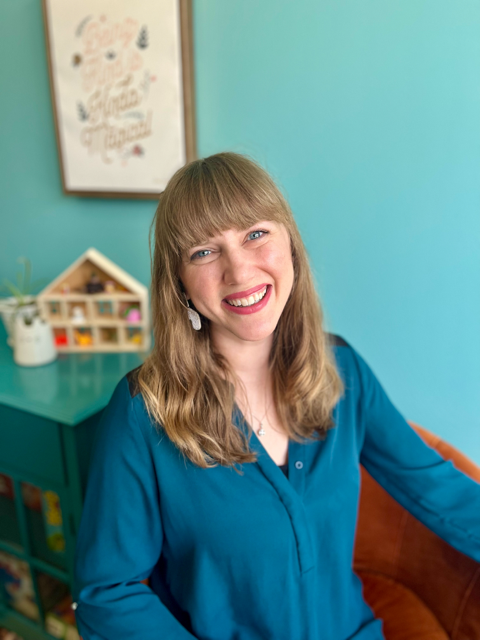An expressive art therapy session for a grade schooler and their family in south Omaha. A digital platform that connects children and families with resources before a therapist becomes available.
An internship program that not only assists clients experiencing complex trauma, but also creates a pipeline of local mental health therapists.
These are among the efforts spearheaded by Omaha’s Project Harmony thanks to a grant from Clarkson Regional Health Services.

Scott Butler
“We couldn’t do this work without the Clarkson grant. We couldn’t do this work without community support,” said Scott Butler, Project Harmony’s Senior Director of Prevention & Early Intervention. “This grant has allowed us to pull in more people and create tools we didn’t have before.”
Project Harmony, a nonprofit that responds to, treats and works to prevent children and families from dealing with child abuse and neglect, is a grateful recipient of a $700,000, two-year grant from Clarkson Regional Health Services.
Removing barriers is key – and a shared goal of Project Harmony and Clarkson. Sometimes that means providing therapy in a location close to someone’s home or workplace, or covering the cost of necessary treatments that may otherwise be out of reach.
To tap into the needs of the underserved, Project Harmony used funds from Clarkson’s grant to provide expressive art therapy programs for individuals and groups through its early intervention mental health Connections program. Referrals generally come from local schools, and the sessions are held at the Learning Community Centers in north and south Omaha.
Last year, therapists provided art therapy to 22 children, who ranged in age from kindergarten to 8th grade, at the north Omaha location. Project Harmony expects to offer two similar groups this spring.
Meanwhile, 23 children and adults received individual therapy at the north and south Omaha locations. Despite losing Medicaid coverage, one client was able to continue sessions thanks to the Clarkson grant. Nearly 60 children and adults participated in group therapy.
Butler said Project Harmony listens to clients and selects therapists based on the clients’ preferences, whether they wish for their therapist to be of a certain religious perspective, gender, ethnicity, or other demographic. Then, a Project Harmony mental health coordinator keeps in regular contact with the client to ensure progress is being made.
“Because of that match and the ongoing support, 90% of the families that are referred to us attend their first therapy appointment. Around 90% of them complete the entire 16 to 20 weeks of therapy,” Butler said. “Those percentages are just unheard of in the mental health field, and that’s because we’re meeting them where they are and we’re supporting them.”
Making mental health therapy more accessible has also meant taking it to peoples’ fingertips. The Clarkson grant served as seed money to launch Connect to Wellness, a digital tool that children and their families can access while waiting for therapy.
Clarkson funds helped Project Harmony pay University of Nebraska at Omaha psychology students as consultants to develop the content, which includes topics like “What is Therapy?”; “Emotions, Thoughts and Feelings;” and “Peer Conflict.” Additional lessons are currently in development.
Children who use the platform earn points, win prizes and get familiar with basic therapy vocabulary and concepts.
Since launching in September, thirteen families have enrolled in Connect to Wellness, and the platform has drawn interest from other child advocacy centers across the nation that would like to use the tool, too.
Perhaps most significant, the Clarkson funds have helped Project Harmony pay mental health therapy interns who are able to provide services to children experiencing the most chronic cases of serious abuse or neglect.
Last year, using the Clarkson grant, Project Harmony paid interns to provide therapy to 42 children and their families. Benefits for those clients include a better sense of security for the entire family and a noticeable decrease in the symptoms that sparked the child’s need for the therapy in the first place.
The internship program is proving to be dually valuable. Clients get into therapy faster, and the interns themselves fulfill requirements for graduation and state licensure. Interns receive the added bonus of professional trainings and shadowing opportunities for unique and complex cases, such as those involving trafficking and missing youth.

Vanessa Summers
Project Harmony’s clinical program manager Vanessa Summers, a licensed independent clinical social worker, oversees the internship program. Her position, plus the interns, are funded by the Clarkson grant. The program has about five interns at any one time.
“We have a lot of families in need and not enough therapists to keep up,” Summers said. “Our interns can hit the ground running. They learn how to do the assessments, build rapport, and make a treatment plan. They also get a really good trauma-informed education here. They know how to be a therapist for clients with high-needs trauma.”
One intern has graduated and joined Project Harmony’s full-time mental health staff, while others have gotten jobs elsewhere in Omaha. Both Summers and Butler see the workforce development element as a win.
“We’re thrilled if our interns stay (at Project Harmony), and we are thrilled if they go into the community, because we can refer to them,” Butler said. “It’s the education they’re getting here that they can’t get anywhere else.”
Increasing access to mental health care and building a sustainable mental health care workforce are goals both Project Harmony and Clarkson Regional Health Services share.
“Mental health is a critical need in our community that has been exacerbated by the pandemic. The lack of a robust workforce limits access for many people in our community. The Clarkson Regional Health Services Board saw the work Project Harmony was doing to train more providers and wanted to join them in this effort,” according to the Clarkson Regional Health Services Advancement Committee.
“Project Harmony developed plans to enhance the pipeline of trained mental health providers entering the workforce, increase the number of school-based therapy groups and expand mental health services offered through the Learning Communities of North and South Omaha. These programs dovetailed with Clarkson’s desire to improve access to high value care. We are very proud of our partnership with Project Harmony and greatly value the work they do.”
Clarkson Regional Health Services partnered with the Omaha Community Foundation to administer a grant program focused on mental and behavioral health. The program’s goal was to increase access to value-based mental health services in underserved communities in Omaha and across Nebraska.